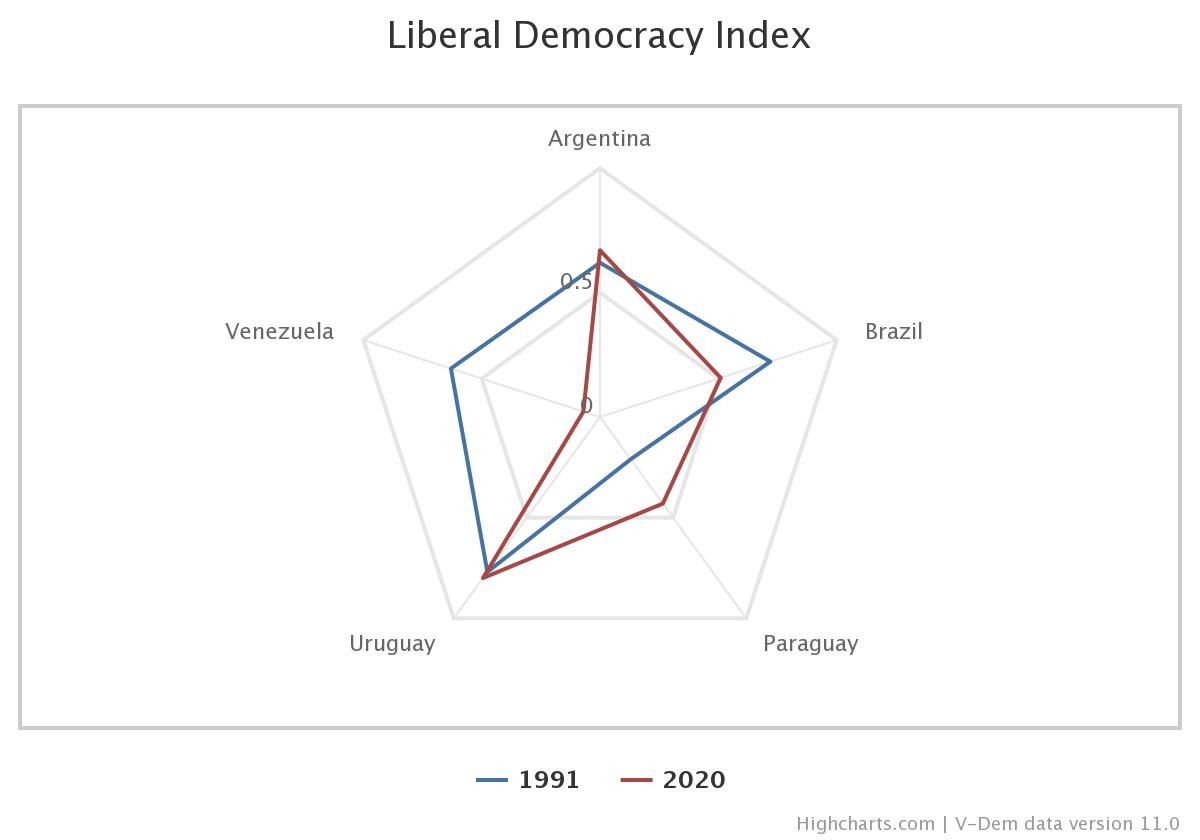30 Years of MERCOSUR
By: Milene Meneghetti Bruhn
May 31, 2021
On 26 March, the most ambitious integration project in South America, the Common Market of the South (MERCOSUR), celebrated its 30th birthday. The 1991 Treaty of Asuncion, agreed upon by Brazil, Argentina, Uruguay, and Paraguay - and joined by Venezuela in 2012 - aims to encourage more economic and political cooperation between the signatory states, based on a commitment to democratic institutions and economic development.
Despite the duration of the integration process, the group faces challenges ahead. It failed to achieve most of its goals in the area of economic integration, and the process has slowed down over time since trade peaked in 1997. Multiple factors explain the low performance including the lack of political coordination between members, economic crises, and shaky agreements with other blocs.
With the intention of supporting democratic governance in the region, the Protocol of Ushuaia, signed in 1998, makes democratic institutions a prerequisite for the existence and development of MERCOSUR. Members that do not respect democratic principles can be suspended from activities promoted within the initiative. The protocol came into force with the membership halt of Paraguay in 2012. MERCOSUR suspended the country until the 2013 elections, because of the forced termination of the then-president Fernando Lugo government. During Paraguay's suspension Venezuela became a full member of MERCOSUR but was suspended four years later due to the erosion of democratic institutions.
The graph below illustrates the liberal democracy index, scaled from 0 to 1, where 1 represents strong civil liberties, the rule of law and institutional checks and balances. The two time points (1991 and 2020) correspond to the roughly 30 years of the MERCOSUR agreement. The countries depicted represent the five full members of the bloc, including Venezuela, despite its 2016 suspension.
Argentina and Uruguay not only remained essentially democratic during the period but also improved on the inde. This improvement is driven by increased court independence and better government compliance with the judiciary. At the same time, Paraguay managed to develop better democratic institutions and a more transparent legislature. As backsliders, Venezuela and Brazil seem to have lost some of their democratic characteristics. Brazil scores slightly lower than before after setbacks in minority rights. Venezuela, on the other hand, suffered a larger drop, reflecting weakening democratic institutions. The mismatch in democratic governance that we show in the graph translates into the international arena. Brazil and Argentina, the two economic powers of the bloc, currently have governments that antagonize each other, creating greater instability in the region.
Other multilateral institutions around the world have also been dealing with backsliding members. In Europe, for instance, the EU has been striving to handle less compliant regimes such as those of Andrzej Duda in Poland and Viktor Orbán in Hungary. Given that democracy is a necessary condition for MERCOSUR’s success, divergent movements of its members and democratic backsliding may hinder economic and political integration.


